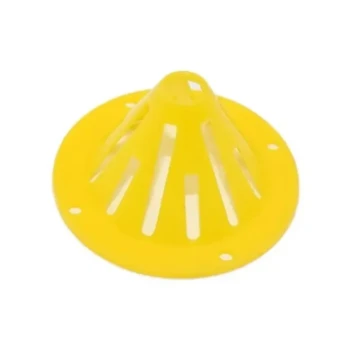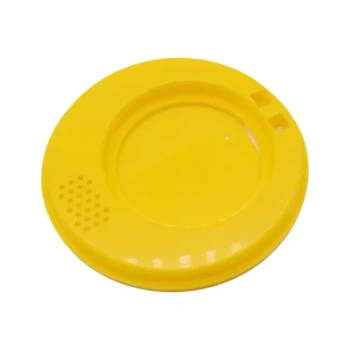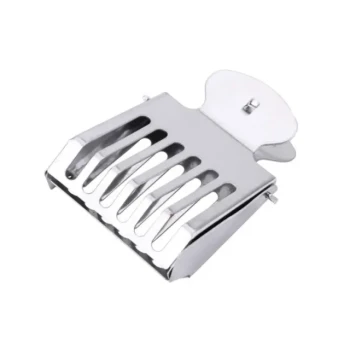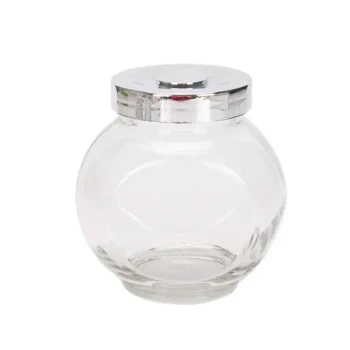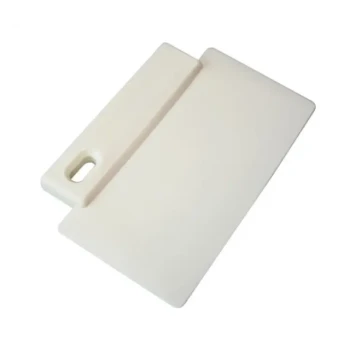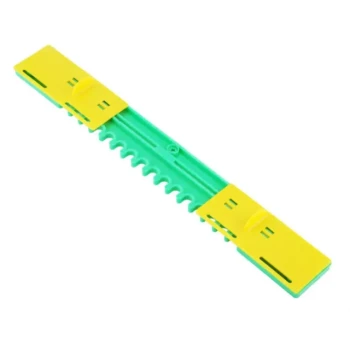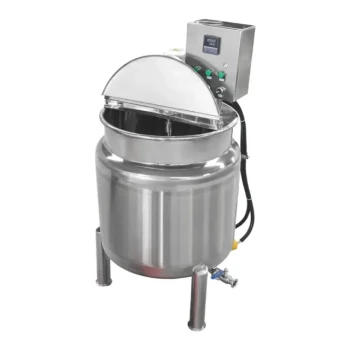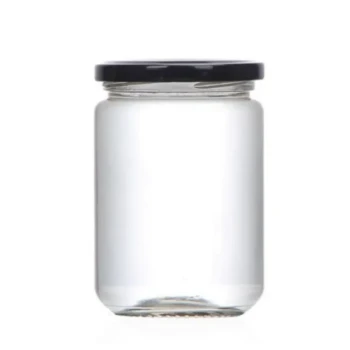In modern beekeeping, feeding pollen substitute has become a necessary practice primarily due to the widespread lack of consistent, diverse natural forage. Modern agricultural and urban landscapes often create "nutritional deserts" where honey bees cannot find the steady supply of varied pollen required to maintain colony health, build up populations, and survive winter.
Pollen substitute is a critical insurance policy against nutritional gaps created by modern environments. However, it is not a perfect replacement for high-quality natural forage, and its use should be a strategic decision based on observation, not a routine chore.
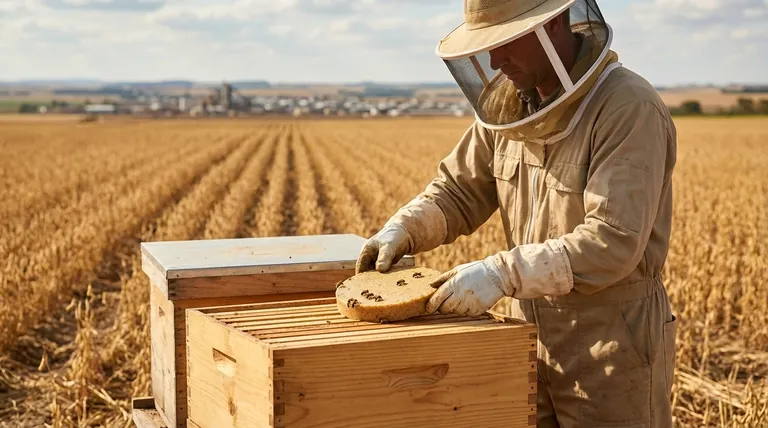
The Core Problem: A Modern Nutritional Gap
The fundamental reason for supplemental feeding is that many environments no longer provide the consistent, diverse floral resources that bees evolved with. This nutritional gap is a direct result of human activity.
Agricultural Monocultures
Vast fields of a single crop, like corn, soybeans, or even almond orchards, create a "feast and famine" cycle for bees. They may have access to a single, massive pollen source for a few weeks, followed by months with virtually nothing available once that bloom ends. This lack of diversity can lead to malnutrition.
Urban and Suburban Sprawl
While a diverse suburban garden can be beneficial, large areas of manicured lawns, pavement, and non-native ornamental plants offer very little for pollinators. This fragments the landscape and eliminates the weeds, wildflowers, and native trees that once formed the backbone of a bee's diet.
The Impact on Colony Health
Pollen is the bee's sole source of protein, lipids, vitamins, and minerals. It is essential for raising new bees (brood). A shortage of quality pollen leads directly to a smaller brood nest, weaker bees, a reduced population, and a colony that is far more vulnerable to pests, diseases, and the stress of winter.
When is Pollen Substitute Truly Necessary?
Strategic feeding is about providing protein at critical moments when natural sources are insufficient. It is not about feeding continuously.
Early Spring Brood Rearing
This is the most common time to feed. The queen is beginning to lay eggs to build the colony's population, but cold or wet weather may prevent bees from foraging, and few flowers may be in bloom. A pollen patty can jump-start brood production, ensuring a strong workforce for the main spring nectar flow.
During a Pollen Dearth
A pollen "dearth" is any period where there is a lack of pollen-producing flowers. This often occurs in the heat of mid-to-late summer in many regions. Providing a substitute ensures the queen doesn't stop or slow her laying rate, which would result in a weak colony heading into fall.
Preparing for Winter
The bees raised in the fall are the "winter bees" that must survive for months. These bees need to be healthy and have high fat reserves. If natural fall pollen sources (like goldenrod and aster) are poor, feeding a substitute ensures the colony can raise a strong winter population.
Understanding the Trade-offs
While beneficial, pollen substitutes are a tool with specific limitations. Blindly using them is inefficient and can be a waste of money.
It Is Not a Perfect Replacement
Natural pollen from diverse floral sources contains a complex array of micronutrients and beneficial compounds that science has not fully replicated. A pollen substitute is a blunt instrument designed to provide basic protein and lipids. Natural pollen is always superior.
Bee Preference and Waste
If there is high-quality natural pollen available, bees will often ignore a substitute patty entirely. They are hard-wired to prefer the real thing. It is crucial to observe your bees; if they are bringing in large amounts of multi-colored pollen, feeding a substitute is likely a waste.
The Cost vs. Benefit
Pollen patties represent a significant cost to the beekeeper. As one of the key references noted, there is no apparent benefit to feeding substitute when adequate natural pollen is available. Therefore, you should not waste money feeding colonies that do not need it.
Making the Right Choice for Your Colony
Your decision to feed should be based on your specific goals and careful observation of your bees and local environment.
- If your primary focus is maximizing colony growth for pollination or splits: Feed a substitute in early spring to aggressively stimulate brood rearing before the main nectar flow.
- If your primary focus is ensuring winter survival in an area with poor fall forage: Feed a substitute in late summer or early fall to help the colony produce healthy, robust winter bees.
- If your primary focus is cost-efficiency in a resource-rich environment: Observe your hives regularly. Only provide a substitute if you notice a significant drop in natural pollen coming into the hive, especially during critical brood-rearing periods.
Ultimately, think of pollen substitute not as a routine meal, but as a strategic tool to ensure your bees have the resources they need, exactly when they need them.
Summary Table:
| Situation | Purpose of Pollen Substitute | Key Benefit |
|---|---|---|
| Early Spring | Jump-start brood rearing | Builds a strong workforce for the main nectar flow |
| Pollen Dearth (e.g., mid-summer) | Maintain queen laying rate | Prevents population decline before fall |
| Preparing for Winter | Support healthy 'winter bee' development | Increases colony survival through colder months |
Ensure your apiary thrives year-round with HONESTBEE's premium beekeeping supplies.
As a commercial beekeeper or distributor, you understand that colony health directly impacts productivity and profitability. Strategic use of high-quality pollen substitutes is key to bridging nutritional gaps in today's challenging environments.
HONESTBEE supplies beekeeping equipment and nutritional supplements designed for the demands of commercial-scale operations. Our products help you:
- Boost Brood Production: Support strong, early-season population growth.
- Mitigate Forage Shortages: Maintain colony strength during pollen dearths.
- Enhance Winter Survival: Raise robust bees capable of withstanding colder months.
Let's discuss how our wholesale-focused solutions can strengthen your colonies and streamline your operation.
Contact HONESTBEE today for expert advice and reliable supplies tailored to commercial beekeeping success.
Visual Guide
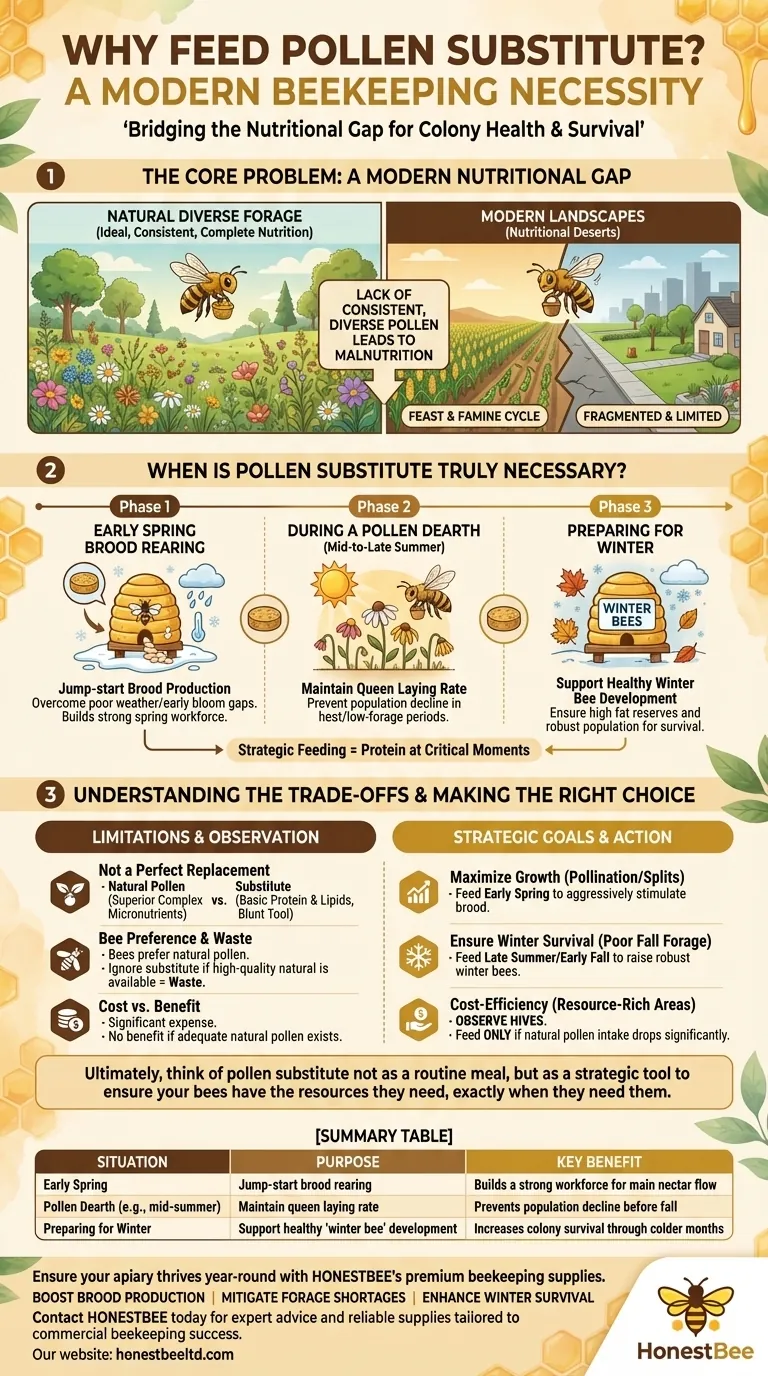
Related Products
- High Performance Plastic Queen Excluder for Beekeeping and Apiary Management
- Slatted Porter Style Bee Escape for Rapid Hive Clearing
- Circular Labyrinth Bee Escape for Efficient Hive Management
- Oxalic Acid Vaporizer 12V for Bee Varroa Mite Treatment
- Heavy Duty Stainless Steel Queen Bee Catcher Clip
People Also Ask
- What is the significance of the physical barrier function provided by Queen Excluders? Boost Honey Purity & Efficiency
- What is the function of a queen excluder in honey production? Essential Tools for High-Purity Honey Harvesting
- What are the core functions of metal or plastic queen excluders? Boost Honey Purity & Operational Efficiency
- What role do Queen Excluders play in controlling honeybee swarming and brood management? Expert Hive Control Guide
- How do queen excluders contribute to evaluating predatory mite impact? Standardize Research with HONESTBEE Equipment

